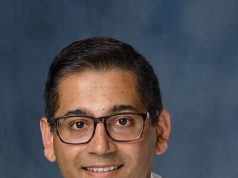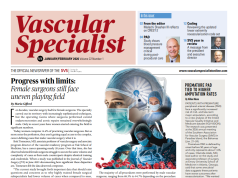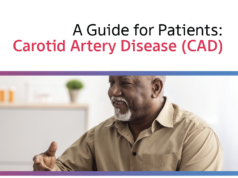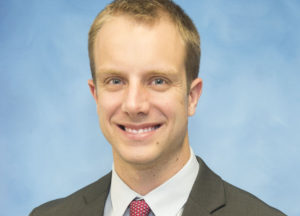
In August, University of Michigan general surgery resident W. James Melvin, MD, picked up the coveted Society for Vascular Surgery (SVS) Foundation Resident Research Award for work investigating the role of the enzyme SETDB2 in diabetes patients infected with COVID-19. He quickly followed that up in September by collecting the Midwestern Vascular Surgical Society (MVSS) Charles C. Guthrie Award for Outstanding Research for work exploring the part the same enzyme plays in regulating abdominal aortic aneurysm (AAA) formation. Here, he discusses his journey as an aspiring surgeon-scientist so far—and what it takes to give yourself the best possible chance of success.
I remember one of my mentors during medical school told me that less than 3% of academic surgeons are successful at running a research lab. I had known it was difficult, but I didn’t realize the scope of the challenge until I had heard this statistic. I am intimidated when I think of all the motivated and talented surgeons who struggle to keep research going during their career. Thus, when I was looking at mentored research opportunities during the dedicated time of my surgery residency away from clinical work, I wanted to get the best training I could find—so that when I set out on my own in a few years I will be as prepared as possible. So far, I have learned that a couple of key factors are critical for success.
Most important is to find a mentor who can provide a stable financial foundation, the wisdom of experience, and an endless source of opportunity. Ideally, they will have a successful track record of mentoring resident trainees with a similar background as yourself. Just as important, you should be thinking about whether your skills, goals, and personality match well with your prospective mentor. A strong relationship with them and aligned expectations for what your mentored experience will be like are key.
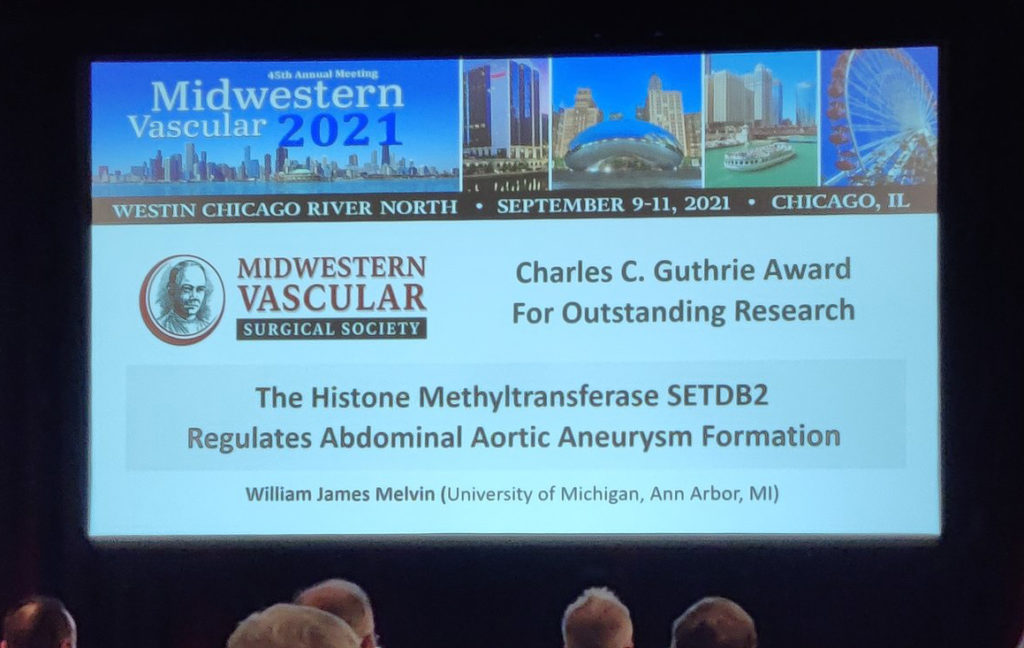
Second, passion for your work is paramount. Pick research questions and problems that have affected you in the clinical realm and have a wide impact. For me, seeing runaway inflammation in diabetic patients with COVID-19 when I was redeployed to a pop-up intensive care unit (ICU) in the spring of 2020 gave me all the motivation I needed to search for answers. I would imagine that working on a research project you aren’t interested in because it was assigned to you, or that is just convenient, is not a recipe for success. Draw on your clinical experience to latch onto hypotheses that you can relate to and get excited about. When it comes time to test therapeutics and present your work, this will pay dividends. Furthermore, you will undoubtedly be more well-versed in the field if you are interested in it, which is critical for rounding out your scientific work. After all, you may discover new or alternative techniques from reading about others’ work and add similar experiments to your own story.
Third, running a few projects in parallel is important. I have found that the need for troubleshooting and experimental delay is inherent to basic and translational science. If you are only dedicated to one project or research question, you will be at the mercy of multiple factors that are outside your control—not even counting how accurate your hypothesis may have been. You should look to start a dedicated research fellowship time with some preliminary data/hypotheses in several different domains, and then follow the data. Flex your focus to what is working, and then shift it when things are not.
Lastly, find and form strong relationships with the team you work with day to day. I have been blessed with a fantastic group of co-researchers and co-fellows. They have years of experience and have been instrumental in helping with the daily challenges of basic science experiments. Don’t try to troubleshoot every assay yourself—get help and advice as soon as possible. Then pay it back: include them on your publications and help them in return when you can.
Research is difficult—and finding the right hypothesis can seem to be about luck sometimes. However, by finding a supportive and successful mentor, multiple research questions you are passionate about, and an experienced team of co-researchers, you can set yourself up to discover something new and make an impact for our vascular patients.

